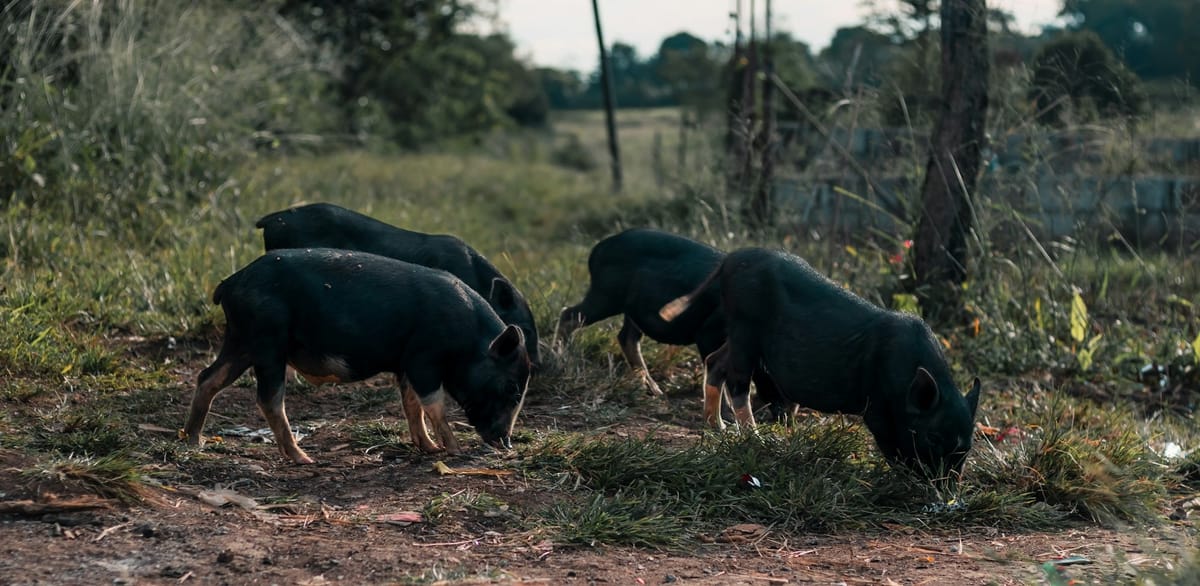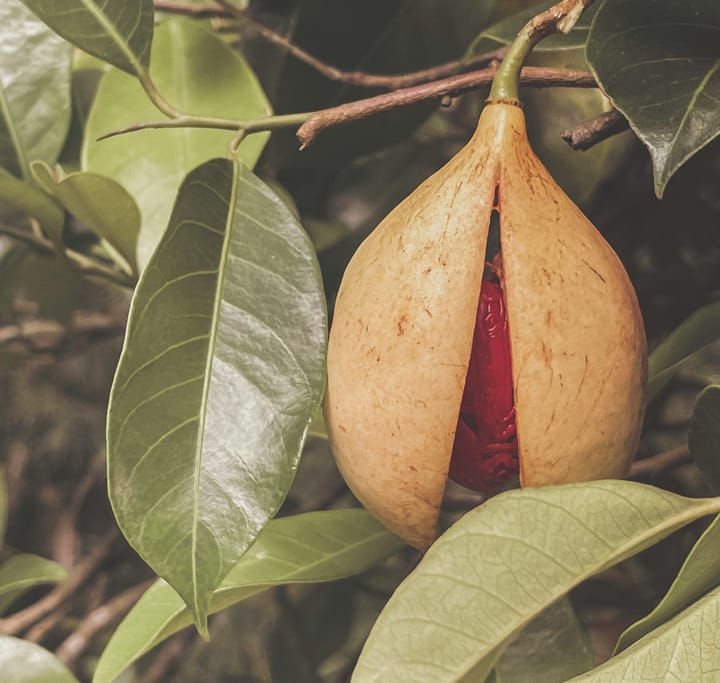Jeju Island: The Ultimate Destination for Premium Korean BBQ Pork
Jeju black pork, celebrated for its rich flavor, tender texture, and exquisite marbling, is the ultimate highlight of Korean BBQ. Exclusively raised on Jeju Island, this premium pork offers an unmatched dining experience, shaped by its unique origins and meticulous care.

When it comes to Korean BBQ, no meal is complete without the rich, savory taste of grilled pork.
Among the many varieties available, Jeju black pork stands out as the pinnacle of quality and flavor, earning its place as the crown jewel of Korean BBQ.
Raised exclusively on Jeju Island, this premium pork boasts an exceptional reputation for its tenderness, distinctive marbling, and rich, savory taste.
From its unique origins to the meticulous farming and processing methods, Jeju black pork offers a dining experience unlike any other.
Origins of Jeju Black Pork
Jeju black pork comes from a breed of native pigs known as Jeju Heukdon, which translates to "Jeju black pig."
This breed is smaller in size compared to other commercial pigs but has been bred specifically for its superior pork meat quality.
Historically, Jeju black pigs were free-range animals raised in the island's volcanic terrain, contributing to their robust and unique flavor profile.
Today, modern breeding practices have refined their traits, resulting in pork that is celebrated for its balance of tender meat and flavorful fat.
What makes Jeju black pork particularly unique is its ability to thrive in Jeju’s pristine environment.
The island’s clean water, fresh air, and natural vegetation play a significant role in shaping the flavor of the meat.
Combined with selective breeding practices, the result is pork that is both delicious and nutritious.
Unlike many commercial breeds, Jeju black pigs have thicker skin and a higher fat-to-meat ratio, which enhances the marbling and flavor, especially when cooked.
A Commitment to Hygiene and Authenticity
The integrity of Jeju black pork is protected by stringent quality controls and certifications.
Only pork that meets strict guidelines can carry the "Jeju Black Pork" stamp, which serves as a mark of authenticity.
This certification process involves verifying the pig’s lineage and ensuring it was raised, slaughtered, and processed on Jeju Island.
Each cut of pork includes detailed markings, such as the initials "DR" for Dream Pork, along with a unique serial number.
This number provides traceability, indicating the pig’s identification, slaughter sequence, grading, date of slaughter, and weight.
This level of transparency ensures that consumers are receiving genuine Jeju black pork, free from imitations.
Maintaining hygiene is critical in pork production, as pork is highly perishable.
From farm to table, every stage of handling is carefully monitored to ensure cleanliness.
Vacuum-sealing methods are used to preserve freshness and extend shelf life, allowing the pork to retain its high quality during distribution.
Korean BBQ's Star: Samgyeopsal

For Korean BBQ enthusiasts, samgyeopsal (pork belly) is the undeniable star of the menu.
Jeju black pork’s samgyeopsal takes this classic cut to new heights.
Known for its thick layers of fat and meat, Jeju pork belly is exceptionally tender and flavorful when grilled.
The high-fat content caramelizes beautifully over an open flame, creating a melt-in-your-mouth experience with every bite.
However, Jeju black pork offers much more than just pork belly.
Cuts like the Jonmahawk (a variation of the tomahawk steak), pork collar, and jowl provide a variety of textures and flavors, catering to adventurous diners looking to elevate their BBQ experience.
The Jonmahawk cut, for instance, combines pork belly, loin, and the flavorful "loin cap," offering a complex flavor profile that pairs wonderfully with traditional Korean seasonings.
Traditional Farming Meets Modern Expertise
What truly sets Jeju black pork apart is the way it is raised. Unlike pigs on factory farms, Jeju black pigs are raised in smaller family groups, reflecting traditional farming practices that focus on animal welfare.
These pigs live in stress-free environments, allowing them to grow naturally. The absence of intensive farming methods ensures that the pork is not only flavorful but also ethically produced.
The pigs are fed specialized diets tailored to their growth stages.
For instance, piglets are weaned and introduced to feeds designed to optimize their development, much like how humans transition from baby food to solid meals.
This attention to nutrition and care results in healthier pigs and, consequently, better-quality meat.
Jeju’s clean water and volcanic soil contribute to the unique taste of the pork.
The natural environment of Jeju Island provides a setting where the pigs can thrive without relying heavily on artificial interventions, enhancing the meat’s natural flavor and nutritional value.
Processing and Preparation
The journey of Jeju black pork doesn’t end at the farm. Processing plays a vital role in ensuring the meat’s premium quality.
Skilled butchers carefully trim and prepare each cut, removing excess fat and impurities while preserving the integrity of the meat.
This attention to detail ensures that the pork is ready for grilling, whether at a restaurant or in the comfort of one’s home.
The fat from Jeju black pigs is repurposed for various uses, such as cosmetics and soap production, showcasing the resourcefulness of the industry.
Bones from the pigs are also utilized in traditional Korean dishes like gamjatang (spicy pork bone stew) and Jeju’s signature pork noodle soup.
Vacuum-sealing technology is used to lock in freshness and flavor, while advanced packaging methods, such as metal detection, ensure that the pork is free from contaminants.
These efforts reflect a commitment to quality, ensuring that every package of Jeju black pork meets the highest standards.
Elevating the BBQ Experience: Cooking Jeju Black Pork
Jeju black pork’s exceptional quality truly shines when it is cooked. Whether grilled over charcoal or on a flat-top grill, the pork caramelizes beautifully, creating a perfect crust while retaining its juices.
For low-temperature smoking, applewood and oakwood are often used to enhance the pork’s natural flavor, infusing it with a subtle smokiness that complements its richness.
Winter is considered the best time to enjoy Jeju black pork.
During colder months, pigs naturally develop thicker layers of fat to insulate themselves, resulting in even richer marbling and flavor.
This seasonal variation adds to the allure of Jeju black pork, making it a sought-after delicacy in winter.
Flat-top grills, which can reach temperatures of over 800°C, are ideal for sealing in the meat’s natural juices.
This technique ensures that each bite is tender, flavorful, and satisfying, making Jeju black pork a highlight of any Korean BBQ meal.
Pairing Perfection: Jeju Black Pork and Himalayan Salt
To fully appreciate the rich flavors of Jeju black pork, simple seasonings are often best.
Himalayan salt, with its subtle mineral notes, is the preferred choice for enhancing the pork’s natural taste.
Unlike sea salt, which can overpower the meat, Himalayan salt strikes the perfect balance, allowing the pork’s marbling and flavor to shine.
Paired with traditional Korean sides like kimchi, garlic, and ssamjang (soybean paste), Jeju black pork becomes a complete culinary experience.
The contrast of textures and flavors elevates the BBQ experience, making each bite memorable.
Why Jeju Black Pork is the Pinnacle of Korean BBQ
Jeju black pork represents the perfect combination of tradition, quality, and flavor.
From its origins on Jeju Island to the meticulous care taken in its farming, processing, and preparation, this pork stands as a testament to the island’s dedication to excellence.
Its marbling, tenderness, and unique taste make it the ultimate choice for Korean BBQ enthusiasts.
Whether it’s the iconic samgyeopsal, the adventurous Jonmahawk, or the hearty pork jowl, Jeju black pork offers an unparalleled BBQ experience.
Paired with the right seasonings and sides, it transforms any meal into a gourmet feast. It’s no exaggeration to say that the best Korean BBQ pork truly comes from Jeju Island, and once tasted, it’s impossible to forget.


